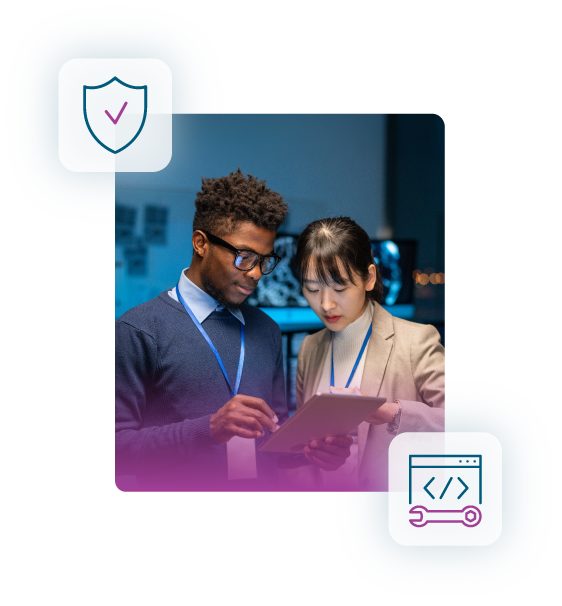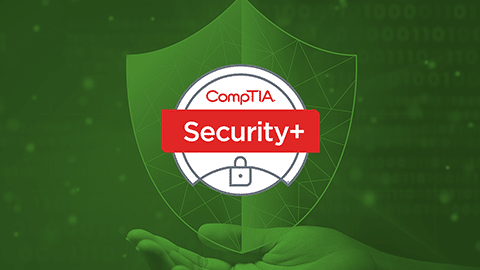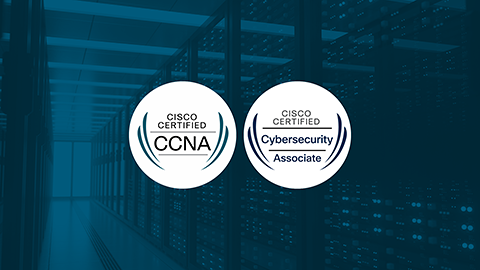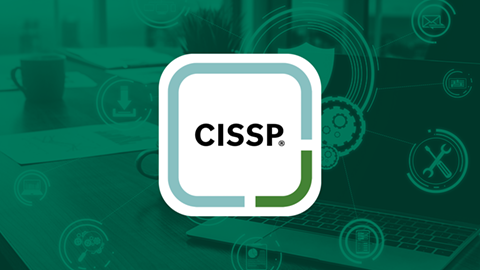
ISC2 Certified Secure Software Lifecycle Professional® (CSSLP) Training Boot Camp

What you'll learn
Training overview
Infosec’s CSSLP Boot camp teaches you how to incorporate security practices throughout the software development lifecycle. You’ll learn key policies, procedures and best practices related to secure software development and how to incorporate them into each phase of the development lifecycle.
You’ll leave fully prepared to earn your CSSLP certification and prove to employers that you have the knowledge and skills necessary to implement secure software development and help mitigate cyber threats.
Video Transcript
What's included
Everything you need to know

- 90-day extended access to Boot Camp components, including class recordings
- 100% Satisfaction Guarantee
- Exam Pass Guarantee
- Exam voucher
- Free 90-day Infosec Skills subscription (access to 1,400+ additional courses and labs)
- Knowledge Transfer Guarantee
- Pre-study learning path
- Unlimited practice exam attempts
Syllabus
Training schedule
Day 1
Secure software concepts
- Core concepts
- Security design principles
Secure software requirements
- Define software security requirements
- Identify and analyze compliance requirements
- Identify and analyze data classification requirements
- Identify and analyze privacy requirements
- Develop misuse and abuse cases
- Develop security requirement traceability matrix (SRTM)
- Ensure security requirements flow down to suppliers/providers
Optional group & individual study
Schedule may vary from class to class
Day 2
Secure software architecture and design
- Perform threat modeling
- Define the security architecture
- Performing secure interface design
- Performing architectural risk assessment
- Modeling (non-functional) security properties and constraints
- Model and classify data
- Evaluate and select reusable secure design
- Perform security architecture and design review
- Define secure operational architecture (e.g., deployment topology, operational interfaces)
- Use secure architecture and design principles, patterns and tools
Secure software architecture and design continued
Optional group & individual study
Schedule may vary from class to class
Day 3
Secure software implementation
- Adhere to relevant secure coding practices (e.g., standards, guidelines and regulations)
- Analyze code for security risks
- Implement security controls (e.g., watchdogs, file integrity monitoring (FIM), anti-malware)
- Address security risks (e.g. remediation, mitigation, transfer, accept)
- Securely reuse third-party code or libraries (e.g., software composition analysis (SCA))
- Securely integrate components
- Apply security during the build process
Secure software implementation continued
Optional group & individual study
Schedule may vary from class to class
Day 4
Secure software testing
- Develop security test cases
- Develop security testing strategy and plan
- Verify and validate documentation (e.g., installation and setup instructions, error messages, user guides, release notes)
- Identify undocumented functionality
- Analyze security implications of test results (e.g., impact on product management, prioritization, break build criteria)
- Classify and track security errors
- Secure test data
- Perform verification and validation testing
Secure software lifecycle management
- Secure configuration and version control (e.g., hardware, software, documentation, interfaces, patching)
- Define strategy and roadmap
- Manage security within a software development methodology
- Identify security standards and frameworks
- Define and develop security documentation
- Develop security metrics (e.g., defects per line of code, criticality level, average remediation time, complexity)
- Decommission software
- Report security status (e.g., reports, dashboards, feedback loops)
- Incorporate integrated risk management (IRM)
- Promote security culture in software development
- Implement continuous improvement (e.g., retrospective, lessons learned)
Optional group & individual study
Schedule may vary from class to class
Day 5
Secure software deployment, operations and maintenance
- Perform operational risk analysis
- Release software securely
- Securely store and manage security data
- Ensure secure installation
- Perform post-deployment security testing
- Obtain security approval to operate (e.g., risk acceptance, sign-off at appropriate level)
- Perform information security continuous monitoring (ISCM)
- Support incident response
- Perform patch management (e.g. secure release, testing)
- Perform vulnerability management (e.g., scanning, tracking, triaging)
- Runtime protection (e.g., runtime application self-protection (RASP), web application firewall (WAF), address space layout randomization (ASLR))
- Support continuity of operations
- Integrate service level objectives (SLO) and service level agreements (SLA) (e.g., maintenance, performance, availability, qualified personnel)
Secure software supply chain
- Implement software supply chain risk management
- Analyze security of third-party software
- Verify pedigree and provenance
- Ensure supplier security requirements in the acquisition process
- Support contractual requirements (e.g., intellectual property (IP) ownership, code escrow, liability, warranty, end-user license agreement (EULA), service level agreements (SLA))
Optional group & individual study
Schedule may vary from class to class
Day 6
Take the CSSLP exam
Schedule may vary from class to class
What makes the Infosec CSSLP prep course different?
You can rest assured that the CSSLP training materials are fully updated and synced with the latest version of the CSSLP exam. In addition, you’ll gain access to a CSSLP prep course the moment you enroll, so you can prepare for and get the most out of your boot camp.
With 20 years of training experience, we stand by our CSSLP training with an Exam Pass Guarantee. This means if you don’t pass the exam on the first attempt, we’ll pay for your second exam at no additional cost to you!
Infosec success stories

"The team at Infosec was great from the start, and they were as excited about my journey as I was. They explained the value behind each training I was considering and how it could further my goals. Their enthusiasm was a great motivation throughout the boot camp."
Elle Autumn
EC-Council Certified Ethical Hacking Course: CEH Certification Training Boot Camp Read Elle's Story
"Infosec has uniquely prepared me for any CMMC retraining that will take place inevitably in the future. With them, it’s not just about completing the certification; it's about being a true contributor to the ecosystem."
James Ahern
Certified CMMC Assessor (CCA) Boot Camp Read James's Story
"The hands-on training was the best part. You have an instructor you can actually reach out to and ask questions — not only on the material, but also about things out in the wild with cybersecurity."
Eddie Quinones
CompTIA Security+ Certification Training Boot Camp Read Eddie's Story
"The Infosec CISM Boot Camp gave me the ability to intelligently explain why I'm making a decision. Ultimately, the C-suite is happy and they know, 'Hey, here's a person that we can rely on."
Mohammad Mirza
ISACA Certified Information Security Manager (CISM) Training Boot Camp Read Mohammad's StoryGuaranteed results
Our Boot Camp guarantees

Exam Pass Guarantee
If you don’t pass your exam on the first attempt, get a second attempt for free. Includes the ability to re-sit the course for free for up to one year (does not apply to CMMC-AB Boot Camps).

100% Satisfaction Guarantee
If you’re not 100% satisfied with your training at the end of the first day, you may withdraw and enroll in a different online or in-person course.

Knowledge Transfer Guarantee
If an employee leaves within three months of obtaining certification, Infosec will train a different employee at the same organization tuition-free for up to one year.
Who should attend

- Software developers
- Software architects
- Software engineers
- Application security specialists
- Penetration testers
- Project managers
- Anyone involved in the software development lifecycle (SDLC)
Before your Boot Camp
Prerequisites
Award-winning training you can trust




Meets 8140 requirements
This boot camp aligns with U.S. Department of Defense 8140.03 requirements for defense personnel and contractors in designated cyberspace work roles.
Why choose Infosec?
Category
Infosec logo
SANS Institute
Training Camp
Global Knowledge (Skillsoft)
AI-powered, hands-on skill validation
12 Roles
Integrated for all roles
90 days
*Protects your investment if trained employees leave within three months of obtaining certification (Infosec will train a different employee at the same organization tuition-free for up to one year).
Explore our top boot camps






